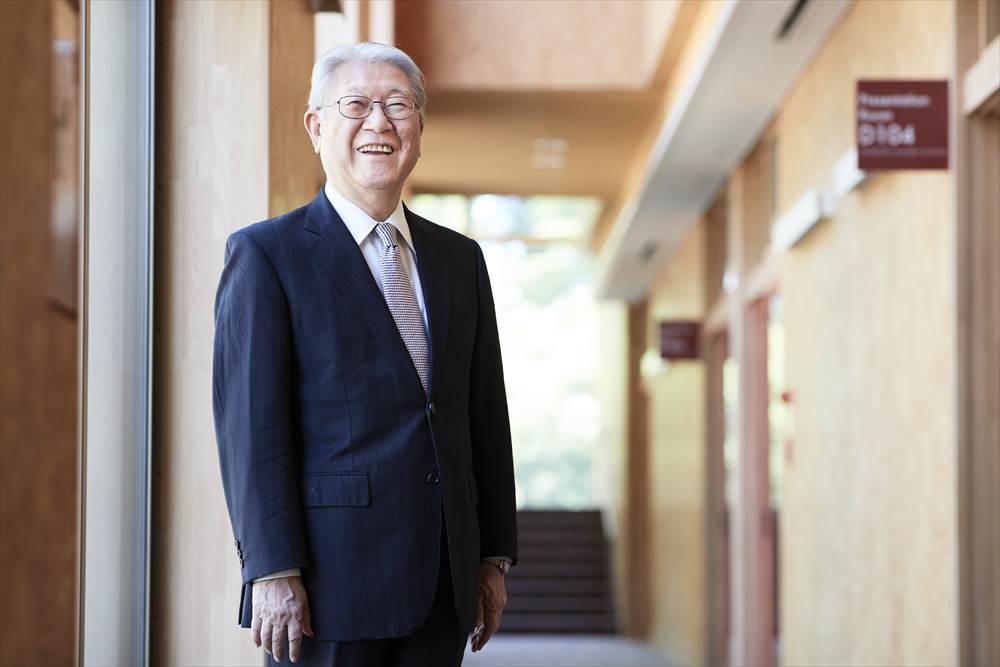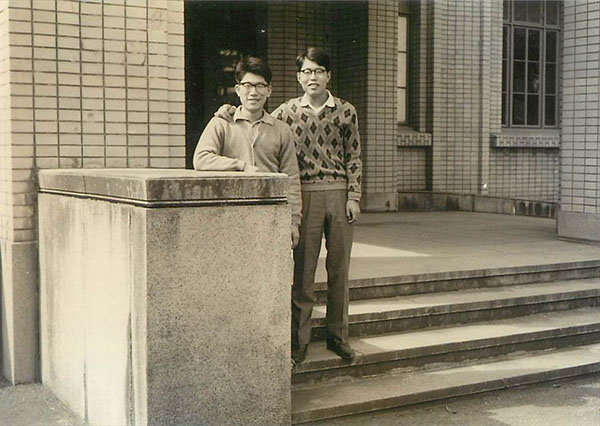2024欧洲杯官方_欧洲杯投注网站推荐
AIU Voices
【Faculty Voices】 Episode 2: “My Study Abroad Experience in the US — My Mentor’s Encouragement and his Words” — Dr. Norihiko SUZUKI
You may have seen the faces of our faculty members, be it in a face-to-face classroom, an online classroom discussion, the university brochure, or possibly, through their professional outputs. But do you know how they really are as an individual?
This Faculty Voices series aims to acquaint you with some of our unique faculty members in the form of a relay essay by the faculty themselves. You will have a chance to get a glimpse of the faculties’ personal agenda, concept on life, philosophy, and memories, as well as their area of profession and research theme.
The second episode is from AIU’s president Norihiko SUZUKI.
After President Suzuki obtained his D.B.A at Indiana University in the United States, he had taught at universities at home and abroad since 1978. He has assumed office as the Chair of the Board and President of AIU on June, 2013, and President Suzuki has successively been appointed as a member of the Central Council for Education, University Education Section, and various other important posts.
President Suzuki has offered us a message under the theme My struggles during my youth. The President’s messages will be published as a three-part series.

My Study Abroad Experience in the US – My Mentor’s Encouragement and his Words –
It has been 45 years, including my postgraduate student days, since I started teaching at universities; 13 years in the United States at Indiana University, Washington State University, and Illinois University, and then 32 years in Japan at International Christian University and AIU.
In the mid-1970s, I was a postgraduate student at the Graduate School of Economics of Hitotsubashi University, majoring in International Economics under the supervision of Professor Dr. Yoichi Itagaki, who actually retired from the university while I was there. It meant that I had to change my supervisor, so I decided to switch to Professor Kiyoshi Kojima’s seminar.
Both professors provided me with definitive advice. Professor Itagaki mentioned the idea that International Economics merely focused on importing and exporting as old-fashioned and a new era was coming for multinational companies to advance overseas. However, the study of International Business in Japan was not mature enough and that I should pursue further research opportunity in the US at the graduate level. Professor Kojima also had strict instruction that I should experience some struggle and to get a doctorate degree outside of Japan (overseas). At the time, my younger brother, Hideo, had successfully started his study in Australia a year earlier than I did after studying economics at the University of Tokyo and graduate school at Hitotsubashi University.
Around that time, the Multinational Corporation Association was just organized in Japan, of which I was the only graduate student member. This association held a one-week lecture series and invited five prominent scholars in International Business, and one of the scholars was Professor Lee Nehrt from Indiana University.
President Suzuki (left) as a student at Hitotsubashi University
I participated in his lecture with Professor Itagaki, but I understood almost nothing of what the professor lectured in English. Nevertheless, Professor Itagaki guided me right to Professor Nehrt at the end of his lecture, and urged me to convince him for my admission to Indiana University. I must have looked nervous but I introduced myself with my poor English and asked him for his permission to enter the graduate school of Indiana University. His answer was not positive. “I cannot reach a decision whether we accept you or not here,” he’d said, but asked me to take him on a one-day excursion around Tokyo instead. It was a huge mission for me, though Professor Itagaki instantly accepted his request, “Yes, Suzuki can take you around Tokyo.”
I assume I instantly became pale. I went back home immediately by train, made some notes on tourist spots in Tokyo with my poor English and memorized them in my mind. I hardly slept that night. When I went to Professor Nehrt’s hotel the following morning, I found him with a large suitcase and he said that he had to cancel his sightseeing in Tokyo and go back to the US because of an urgent matter, and asked me to accompany him to Haneda Airport with his belongings.
I grabbed a taxi and got in with him without fully understanding the situation. I hardly recollect what we talked about in that taxi ride. Once the taxi arrived at the airport, Professor Nehrt said, “Thank you. We’ll keep in touch,” and hurried off to the boarding gate.
By the time I returned home, I started to feel anxious about my future. What if Indiana University accepts me? What if I receive no response at all? Time passed by and I started to lose focus and concentration on my study. What was worse, from my point of view, was that I succeeded in receiving a scholarship for my one-year study abroad from a research institution named the International Development Center, and they had already started sending me money even though I was still in Japan. Sums of money was transferred into my bank account regularly every month, while I had nothing to do but place myself in confinement at home. At the end of each day, I ended up sighing the night away.
I have never forgotten the day that I received the telegram from the United States: at 2 pm on August 4th, 1973, the telegraphic words simply told me that my “Application Has Been Admitted.” The Fall Semester Starts From August 14th.” I should have felt happy but I also felt like I fell in a bottomless abyss. The realization hit me that I’ve never been outside of Japan, and never flew on an airplane before. The situation required me to go to Indiana University in just 10 days for the graduate course which was neither a master’s nor an MBA program but a doctorate program.
To be honest, I cannot recall my 10 days of preparation clearly, but time went by very quickly. My image of graduate students in doctoral courses was somehow of everyone in a suit, so I bought two new sets of them. I also obtained my student visa at the US Embassy, changed my Japanese currency into US dollars, and shipped my daily necessities by sea to the university. In the meantime, I kept studying English and memorizing various words and phrases.
The day came for my departure. It was a hot day in August, but I was too nervous to sweat. My grandparents, parents, uncle, and aunt kindly gathered to see me off at the airport. Through the airplane window, I saw all my family members waving their hand from the roof of the airport building toward my airplane.
I could barely move and spent the next nine hours looking at the field of clouds from the window until landing in San Francisco.
…to be continued.
Click here to learn more about AIU faculty.
Click here for more episodes from the Faculty Voices Series.

